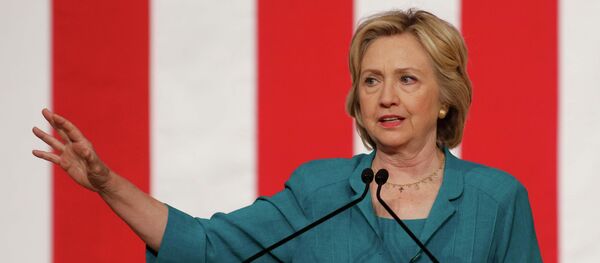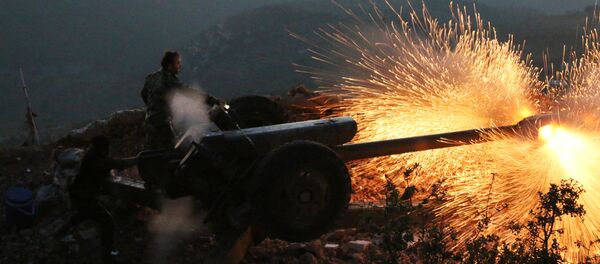Scrutinizing Congressional Republicans' initiative to launch over half-a-dozen probes into Clinton's actions, the analyst pointed out that "if a tenth of the scrutiny Congress devoted to Benghazi went to the administration's case for bombing Libya in 2011, that case would collapse. The flaws in the case were clear then, and Libya's postwar disintegration, of which Benghazi's chaos was symptomatic, just makes them clearer."
Hence, in Friedman's view, "the real scandal" over Libya is not the Benghazi debacle itself, so much as "the US war in Libya and Congress' failure to exercise its war powers and interrogate its rationales."
The analyst pointed out that four years on, none of the Obama administration's justifications for supporting Libya's rebels have borne fruit.
Despite arguing that "a rebel victory over the Gaddafi government would make Libya a liberal democracy," the country has instead become "illiberal and chaotic," with clashing militias in the driver's seat.
As for the administration's suggestion that support for Libya's rebels would prove US resolve in helping Arab Spring protesters across the region, increasing the chances of 'dictators giving way to popular uprisings', Friedman pointed out this idea was "even less sensible…If they did take lessons from Libya, it was to crush dissent before it invites outside help and they wind up like Gaddafi – being brutally murdered on YouTube as the US Secretary of State jokes: 'We came; we saw; he died.'"
As for the much-vaunted argument that the intervention was aimed at saving civilian lives, Friedman pointed out that not only did Gaddafi not threaten civilians with "genocide," as suggested by Clinton during last Thursday's hearing, but that the foreign intervention and prolonging of the civil war "likely produced more deaths than Gaddafi's victory, which was likely in the absence of intervention, would have."
Citing Harvard international relations scholar Alan Kuperman, Friedman noted that "the postwar collapse of the state greatly adds to the humanitarian toll of intervention," and "that too was predictable." Suggesting that many Middle Eastern countries, including Libya, Iraq and Syria, lack "the institutional and ideological coherence" necessary for producing liberal democratic transition, the analyst recalled that "ousting [Gaddafi's] regime produced political violence likely to endure, at the expense of Libyans' wealth, health and life spans."
Partisan Disagreements Melt Away When It Comes to Waging War
Worryingly, Friedman points out that despite the emergence of a scandal around the Benghazi attacks, the war itself has not been the subject of Congressional scrutiny. This, in the analyst's view, is "because the war was bipartisan," with virtually all Congressional Republicans supporting the war, and the Democrats too "busy defending Obama and Clinton at the partisan barricades to indulge any dovish inclinations they might have vis-à-vis Libya."
The consequences, in the expert's view, are not only a dangerous lack of accountability, but also an inability to learn from mistakes. "With no one in power motivated to criticize the wisdom of the war, arguments for it escape scrutiny. The consequence is not just an absence of accountability. Today a bipartisan chorus, including Clinton and her Republican critics, makes similarly fatuous claims in pressing for stronger efforts to aid Syria's rebels."
Ultimately, in Friedman's view, "the Benghazi hearings were worse than a partisan witch hunt. They were an exceedingly narrow one. The real problem in our foreign policy is not partisanship, but the bipartisan consensus that produces reckless military adventures and fails to learn from them."





